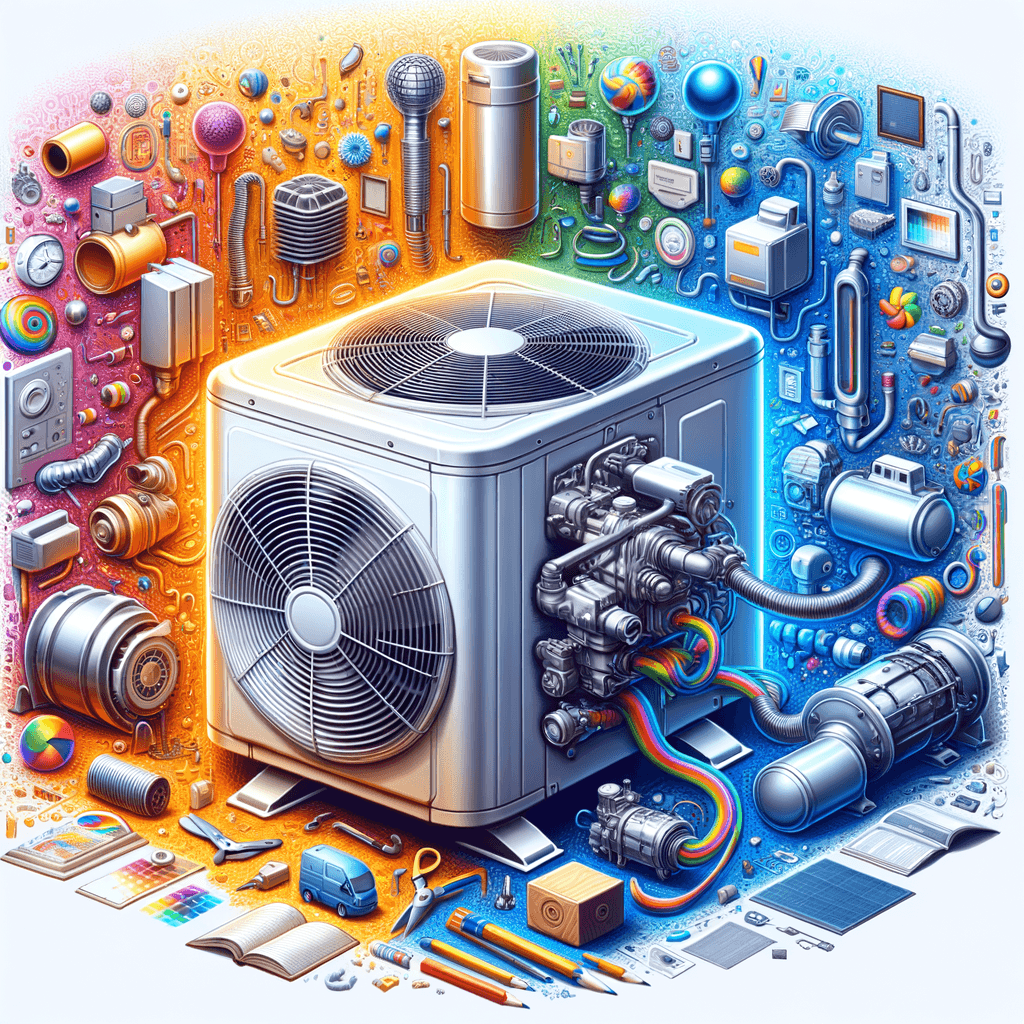
Understanding Air Conditioner Compressor Types: Efficiency, Longevity, and User Considerations
By Total Care Air Conditioning Fri Oct 31 20257 minutes

Introduction: Why Compressor Type Matters in Air Conditioning
The compressor is often called the heart of an air conditioning system, responsible for circulating refrigerant and enabling effective cooling. Choosing the right compressor type can drastically affect energy efficiency, system longevity, noise levels, and maintenance frequency. Homeowners and facility managers aiming for optimal performance and cost savings should understand the differences between compressor technologies before making decisions.Primary Compressor Types in Air Conditioning Systems
Modern air conditioners typically use one of three compressor types: reciprocating, rotary, or scroll. Each has unique mechanical designs, operational characteristics, and suitability for specific applications. Understanding these differences can help you match the right compressor to your cooling needs and expectations.- Reciprocating Compressors: Use pistons and cylinders to compress refrigerant, similar to car engines.
- Rotary Compressors: Employ rotating elements (rollers or vanes) to compress refrigerant in a continuous motion.
- Scroll Compressors: Utilize two interleaved spiral-shaped scrolls, with one fixed and the other orbiting to compress the refrigerant.
Comparing Compressor Efficiency and Noise Levels
Efficiency and noise are major concerns for both residential and commercial users. The type of compressor directly influences how much energy is consumed and how much noise is produced during operation. Scroll compressors are often favored for their smooth, quiet function, while reciprocating compressors, though robust, tend to be louder and less efficient. Rotary compressors strike a balance, offering moderate efficiency and sound levels.“Selecting the right compressor is not just about cooling—it's about achieving a balance between efficiency, durability, and comfort.”
| Compressor Type | Efficiency Rating | Typical Noise Level |
| Reciprocating | Moderate | High |
| Rotary | Moderate-High | Moderate |
| Scroll | High | Low |
Longevity and Maintenance: What to Expect
Compressor lifespan and required maintenance can significantly impact total cost of ownership. Scroll compressors, with fewer moving parts, generally offer longer service lives and reduced maintenance. Rotary compressors require regular lubrication but are reliable for smaller systems. Reciprocating compressors, while sturdy, have more wear-prone components and may need more frequent servicing.- Scroll Compressors: Minimal maintenance, long lifespan, fewer breakdowns.
- Rotary Compressors: Require periodic lubrication, moderate lifespan.
- Reciprocating Compressors: More maintenance, potential for piston or valve failure.
Which Compressor Type Is Best for Your Needs?
Choosing the right compressor depends on factors like cooling load, budget, noise tolerance, and desired energy savings. For homes seeking quiet, efficient operation, scroll compressors are often ideal. Commercial spaces with variable cooling needs may benefit from rotary or advanced multi-stage compressors. Evaluating your specific requirements ensures you invest in a system that delivers comfort and reliability.Common Myths About Air Conditioner Compressors
Misconceptions about compressor types can lead to poor purchasing decisions. Some users believe all compressors perform equally or that higher price always means better quality. In reality, the optimal choice depends on matching system design to application needs, not just cost or brand reputation.- Myth: All compressors have the same efficiency.
- Myth: Scroll compressors are always the most expensive option.
- Myth: Reciprocating compressors are obsolete in modern systems.
Compressor Innovations: What’s on the Horizon?
Emerging technologies such as variable speed (inverter-driven) compressors and oil-free magnetic bearing compressors are transforming the air conditioning landscape. These innovations promise even greater efficiency, reduced noise, and lower maintenance, making them attractive for eco-conscious consumers and businesses.- Variable Speed Compressors: Adjust output to match cooling demand, reducing energy waste.
- Magnetic Bearing Compressors: Eliminate mechanical friction, offering ultra-quiet and durable operation.
- Smart Diagnostics: Built-in sensors monitor compressor health and optimize performance.
“The future of air conditioning lies in smarter, more adaptable compressors that prioritize both efficiency and user comfort.”
FAQs: Air Conditioner Compressors
- How often should compressor maintenance be performed?
- Can I retrofit my system with a different compressor type?
- What are signs of compressor failure?
- Does compressor type affect refrigerant compatibility?
- How does climate impact compressor selection?